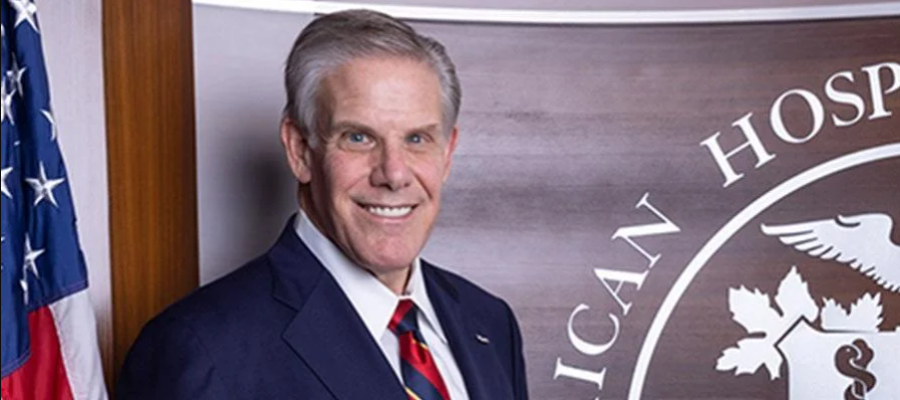As Reconciliation Bill Shifts to the Senate, We Must Speak Up to Protect Medicaid and Access to Care

After approval in the House last week by a one vote margin, the One Big Beautiful Bill Act — a sweeping package that would enact many of President Trump’s legislative priorities on taxes, border security, energy and deficit reduction, including significant changes and cuts to Medicaid and other health care programs — now moves to the Senate.
House Speaker Mike Johnson compared the bill’s difficult journey through the House to “crossing over the Grand Canyon on a piece of dental floss,” and he has urged the Senate “not to meddle with it too much,” as changes will need to come back to the House for final passage.
However, the reconciliation package’s move to the Senate really is starting over in many respects as we expect the chamber to consider substantial revisions to the package. Even President Trump said, “I want the Senate and the senators to make the changes they want. I think they are going to have changes. Some will be minor, some will be fairly significant.”
The bottom line: At this point, nothing is settled, and we still have opportunities to influence the discussion in the Senate and the legislative package they will consider.
Concerns with Current Bill. As noted in our reaction to last week’s vote, we are concerned about the harmful Medicaid and Health Insurance Marketplace provisions currently included in the bill. The sheer magnitude of the level of reductions to the Medicaid program alone — estimated to decimate federal support by more than $700 billion over 10 years — will impact all patients, not just Medicaid beneficiaries, in every community across the nation.
Hospitals, especially in rural and underserved areas, will be forced to make difficult decisions about whether they will have to reduce services, reduce staff and potentially consider closing their doors. Other impacts could include longer waiting times to receive care, more crowded emergency departments, and hospitals not being able to invest in technology and innovations for clinical care.
In particular, the Medicaid legislative proposals severely restrict the use of legitimate state funding resources and supplemental payment programs, including provider taxes and state directed payments, under the guise of eliminating waste, fraud and abuse. We reject this notion as these critical, legitimate and well-established Medicaid financing programs are essential to offset decades of chronic underpayments of the cost of care provided to Medicaid patients.
We will be urging the Senate to make changes to address these and other issues we have with the bill. More details about the bill’s provisions and AHA’s concerns are included in our recent Legislative Advisory and Special Bulletin.
Senate Dynamics and Process. When the Senate returns to Washington next week and begins to consider the One Big Beautiful Bill Act, it likely will not conduct traditional committee markups, leaving most of the Senate language to be developed by Senate Republican leadership and staff, as well as committee members and staff.
At the same time, Senate Majority Leader John Thune will have to navigate divisions among Republican senators on what changes to make to the bill. For example, fiscal conservatives Sens. Ron Johnson, R-Wis., and Rand Paul, R-Ky., have already stated their refusal to vote for the legislation unless deeper spending cuts are made. Meanwhile, moderates, including Sens. Susan Collins, R-Maine, and Lisa Murkowski, R-Alaska, have expressed concerns about Medicaid changes, while Sens. Josh Hawley, R-Mo., and Jim Justice, R-W.Va., have voiced apprehension about the Medicaid provider tax changes.
Making Our Voices Heard. With the Senate aiming to pass its bill before the July 4 recess, the next few weeks will be critical to help shape changes to the Senate bill. The AHA will host an Advocacy Day briefing in Washington, D.C., on June 17 to provide the latest updates on the reconciliation bill before hospital and health system leaders meet with their lawmakers on Capitol Hill. Please visit our Action Center for the latest updates and resources.
In addition, the AHA next week is running digital advertising inside the Beltway urging Congress to protect Medicaid and access to care. At the same time, the Coalition to Strengthen America’s Healthcare, of which the AHA is a founding member, continues to run TV and digital advertisements, including its latest ad in its national Faces of Medicaid campaign, calling attention to the devastating effects that Medicaid cuts would have on millions of seniors and their families.
While we provide the air cover, it’s so important for you to share with your senators the negative consequences some of the proposals would have on the patients and communities you serve.
Nothing is more powerful with lawmakers than your voice — and the voices of your team members, trustees, patients and community members. You live, work and, most importantly, vote in their states and districts. You have their attention and can explain to them the impact policy proposals would have for their constituents and your ability to provide care.
With so much at stake, it is vital that we continue speaking with one voice to protect the blue and white “H” that is a beacon of health, healing and hope in every community across the nation.

